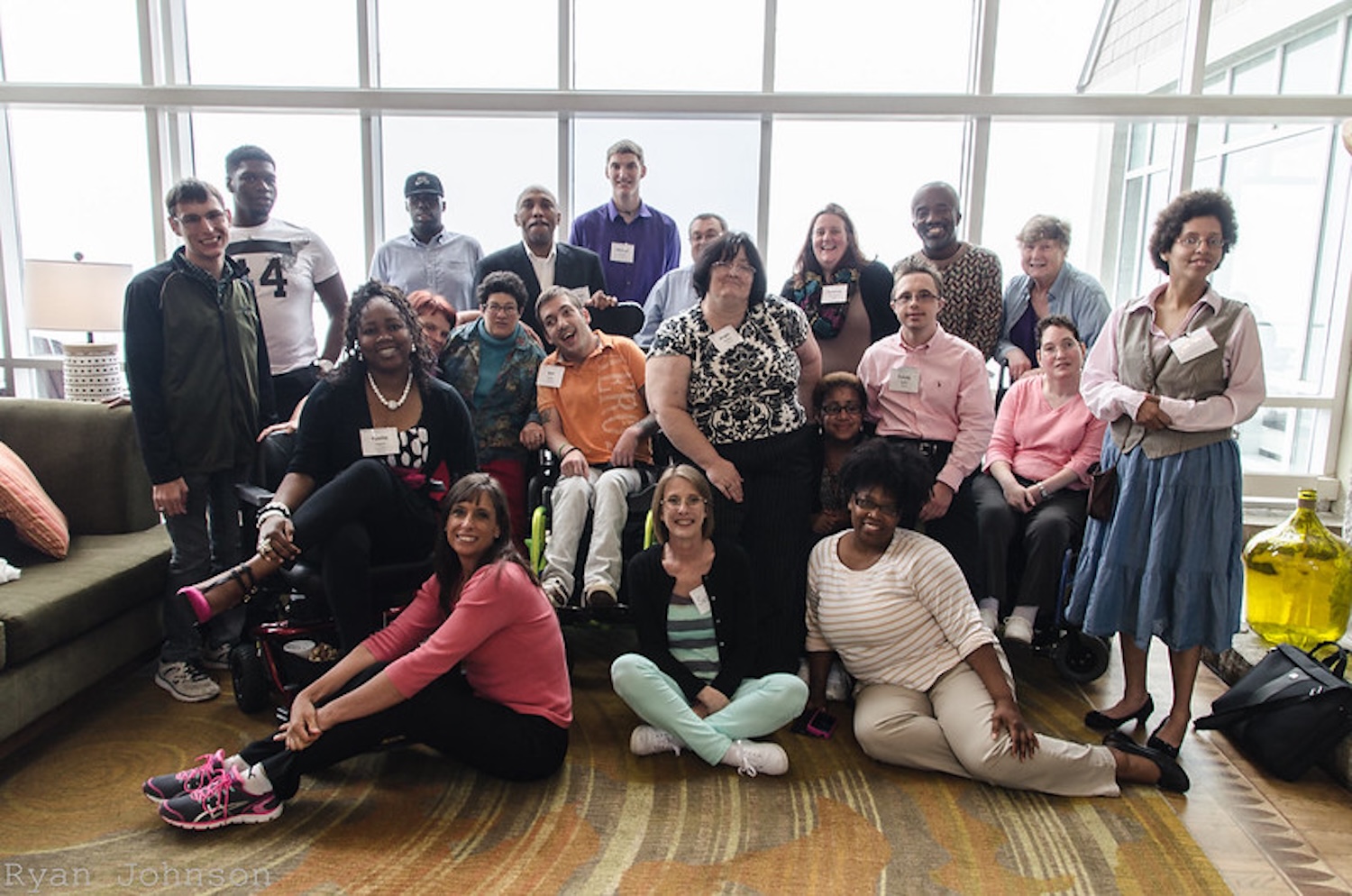Building Leaders: How “My Voice. My Participation. My Board.” Opens Doors for Self-Advocates
In Georgia, a training program is helping people with intellectual and developmental disabilities become leaders in their communities. My Voice. My Participation. My Board. is a program that started in 2014, and has trained 85 Georgians to serve on boards and advisory councils across the state.
 2016 Cohort with Presenter and Disability Rights Champion Liz WeintraubThe program was created to solve a problem. State agencies and nonprofit organizations were making decisions about people with disabilities, but people with disabilities weren't part of those conversations. When the Georgia Department of Behavioral Health and Developmental Disabilities (DBHDD) tried to form an advisory council, they realized they needed self-advocates at the table. That's when a rep from DBHDD reached out to the Center for Leadership in Disability to create a solution.
2016 Cohort with Presenter and Disability Rights Champion Liz WeintraubThe program was created to solve a problem. State agencies and nonprofit organizations were making decisions about people with disabilities, but people with disabilities weren't part of those conversations. When the Georgia Department of Behavioral Health and Developmental Disabilities (DBHDD) tried to form an advisory council, they realized they needed self-advocates at the table. That's when a rep from DBHDD reached out to the Center for Leadership in Disability to create a solution.
"The My Voice. My Participation. My Board. program is built on the idea of 'nothing about us without us,'" explains Molly Tucker, the current program director at Georgia State University's Center for Leadership in Disability. "We believe that instead of making decisions for people with disabilities, organizations should make decisions with people with disabilities."
The program teaches important skills over three full days of training. On the first day, participants learn about their personal strengths, self-advocacy, and leadership. They take a special test called the Values in Action Character Strength Assessment that helps them understand what they're good at. They also learn about the Disability Civil Rights Movement and how to talk with elected officials.
Day two focuses on communication skills. Participants practice public speaking, learn how to give elevator speeches, and understand body language. They also learn about networking, being professional, and how to handle disagreements in a positive way.
On the final day, participants learn everything they need to know about serving on boards. This includes understanding board responsibilities, Robert's Rules of Order, and common terms used in meetings. They practice participating in professional meetings. This makes them confident and ready to jump into conversations.
The program gives participants more than just knowledge. Participants make valuable connections that last long after the program ends. Past presenters remain available as resources when participants go on to join boards. For example, self-advocate and disability rights champion Liz Weintraub has presented to many cohorts, sharing her expertise with emerging leaders. Throughout the program, participants gain important skills from people with disabilities who are already leading in this space.
Over the past 11 years, the program has changed to meet people's needs. It started as three weekends at hotels across Georgia. During the pandemic, it moved online with weekly meetings for three months. Now it's back to in-person training, but shorter—just three days instead of six.
The results have been impressive. Program alumni now serve on many important boards and councils throughout Georgia. Some serve on the Georgia Council on Developmental Disabilities. Others work with organizations like People First of Georgia, the Hartsfield-Jackson ADA Committee, and Autistic Self-Advocacy Atlanta. One graduate has even served on the board of the National Down Syndrome Congress. This is an important position that requires nomination and approval at the national level.
Tucker says the biggest challenge facing graduates is finding boards to join. Many board positions are filled through word of mouth and networking, not public announcements. Some organizations still don't understand why having people with lived experience on their boards is important. Because of this, the program now offers training to organizations about being inclusive and accessible. They want to create more opportunities for their graduates to use their new skills.
For self-advocates who might feel nervous about joining a board, Tucker says, "Ask questions! If something seems interesting to you, connect with someone at the organization and learn more. Ask what will be expected of you and why they want you to join."
The My Voice. My Participation. My Board. program proves that when people with disabilities are given training and support, they become powerful leaders who can change their communities for the better.
Learn more about My Voice. My Participation, My Board on Facebook: https://www.facebook.com/MVMPMB/